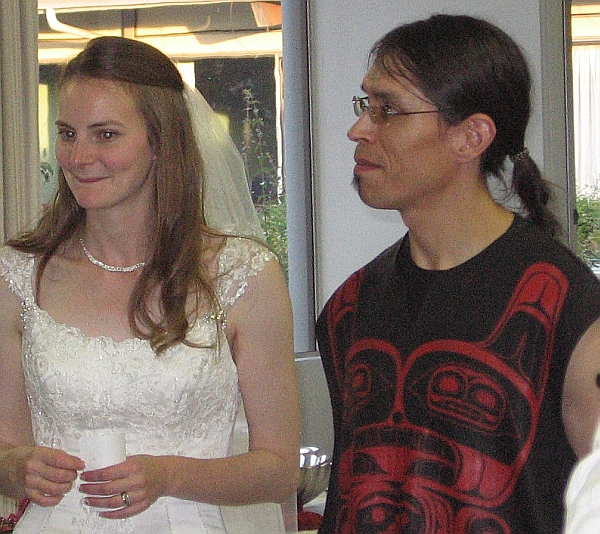
Here are some pictures from our September 2008 trip to Washington state.
The original goal of the trip was my niece's wedding in Seattle. Her new husband is half Tsimshian, one of the First Nations peoples from the Canadian and Alaskan coast.

A Tsimshian group danced at the reception. The button cloaks represent the animal spirits of the clans.
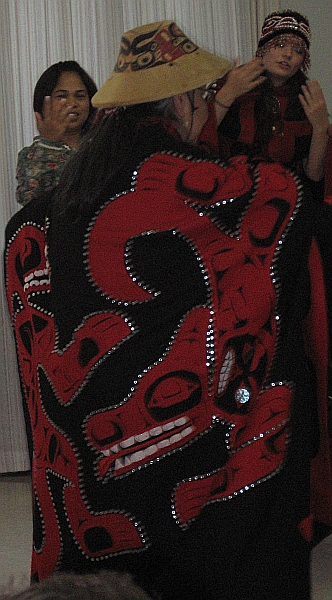
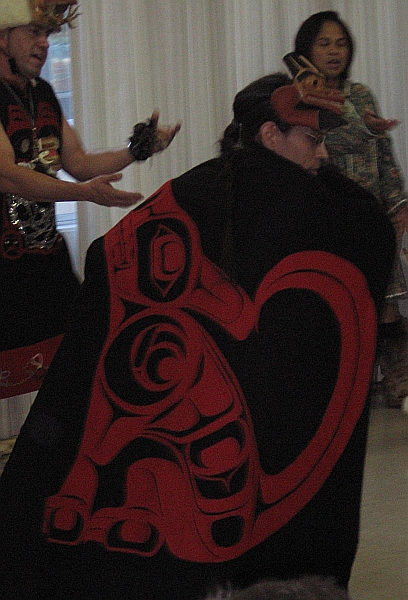
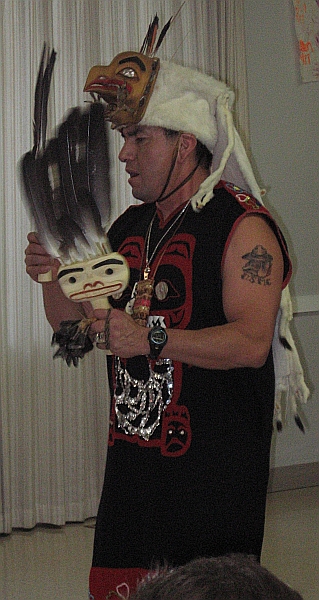
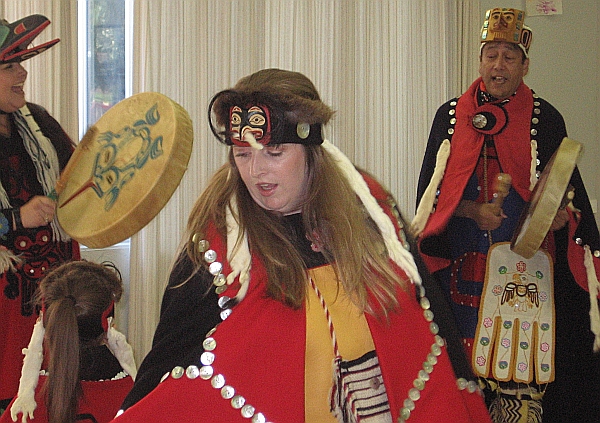
We then took a day to sightsee around Seattle, including the large and wonderful Kubota Japanese Garden.
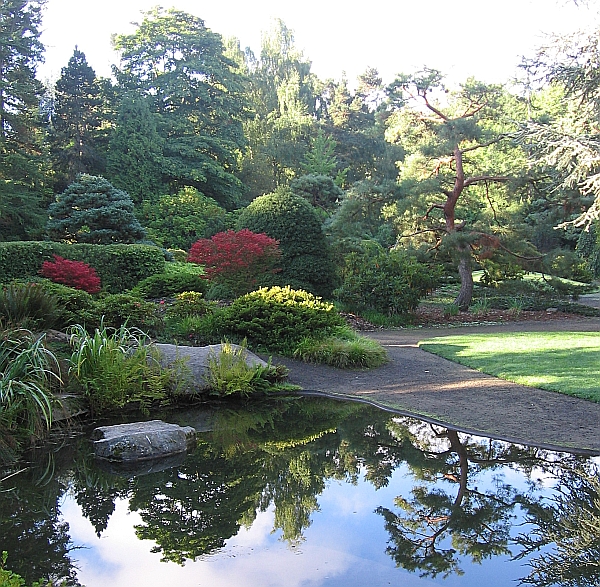
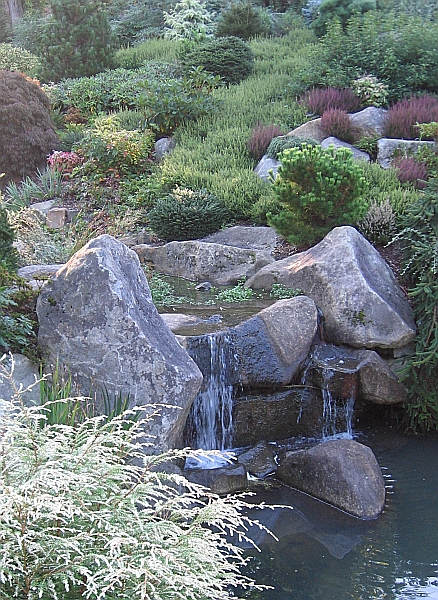
There were gorgeous flowers, and even some wildlife.
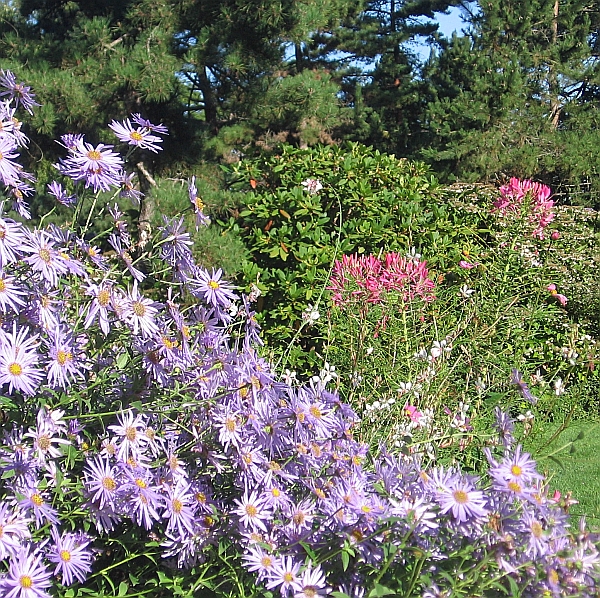
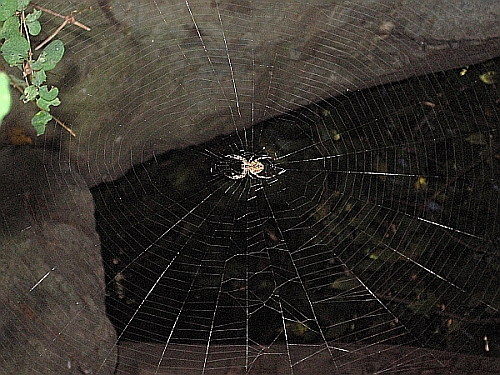
On a ferry ride across Puget Sound, we passed some salmon pens. The far shore showed the Olympic Mountains, while on the trip back, Rainier loomed behind Seattle.
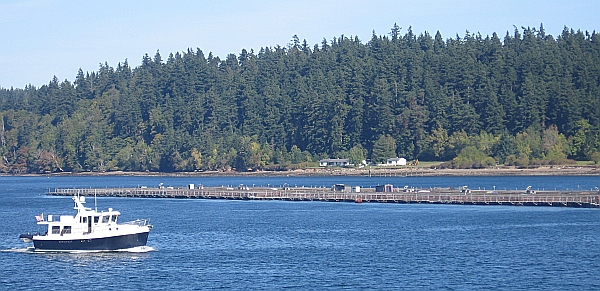
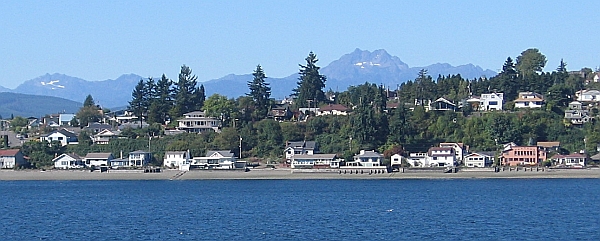
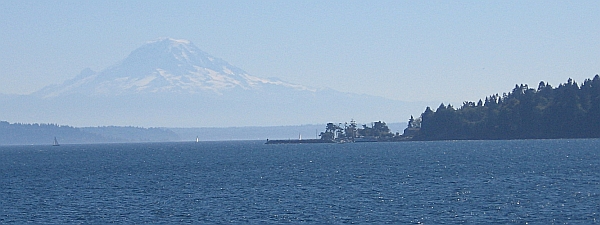
In downtown Seattle, they were selling wreaths made of hot peppers.
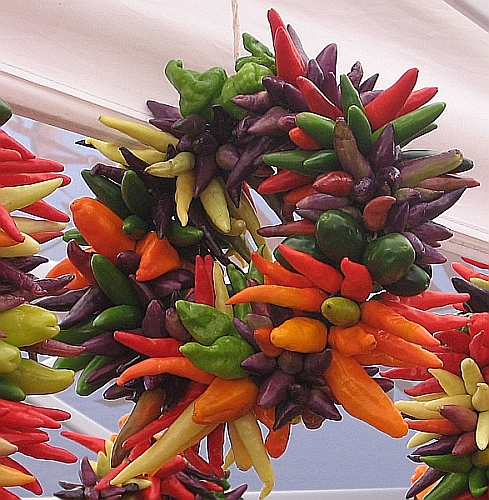
Then we had a few spectacular (and sunny!) days of hiking in Mr. Rainier National Park.
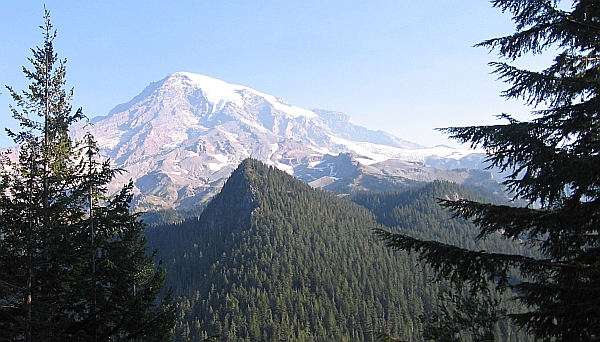
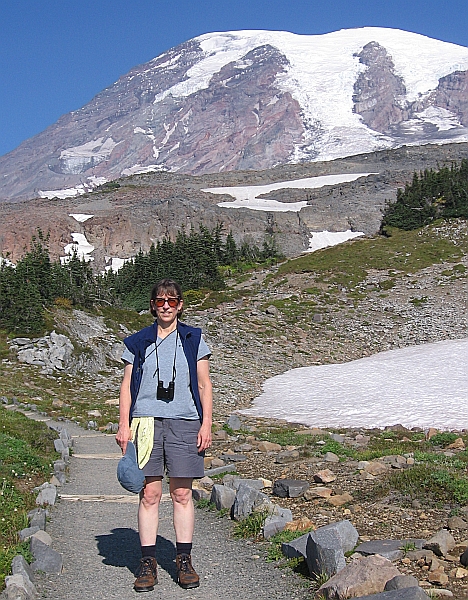
One of the most well-known hikes is up to Panorama Point, with a wonderful view back down on Paradise Valley.
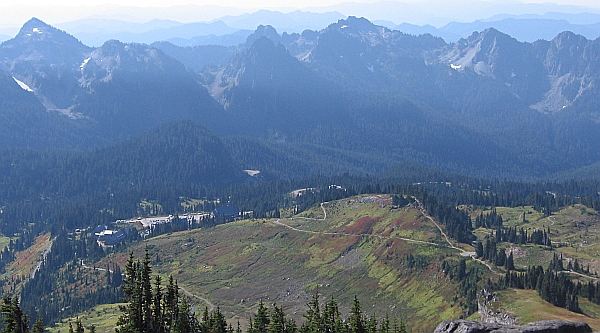
Right nearby are good views of the Nisqually Glacier (which doesn't come as far down the valley as it used to in the days before global warming).
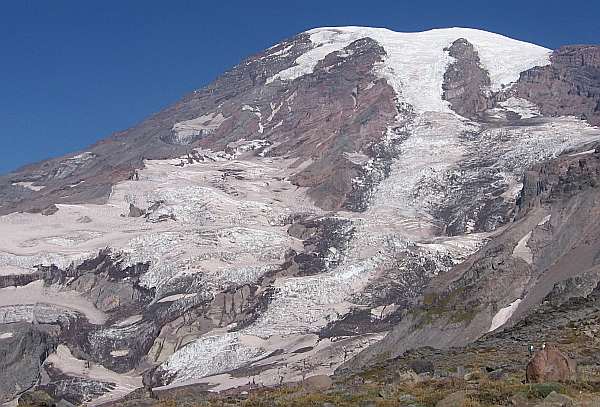
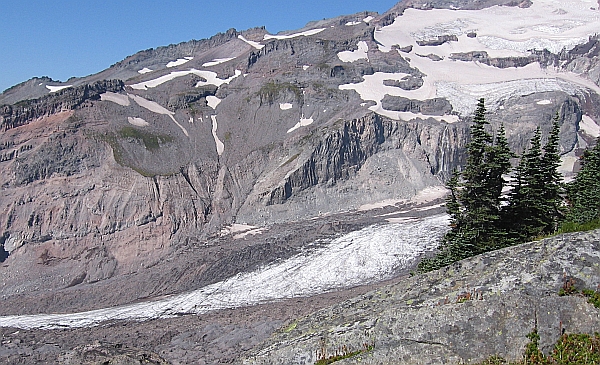
The high country is a moonscape of rocks and ice fields, but we did see a hoary marmot on the way up.
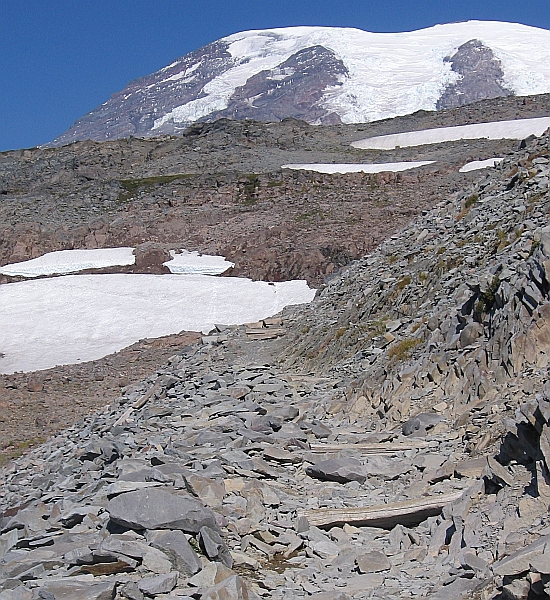
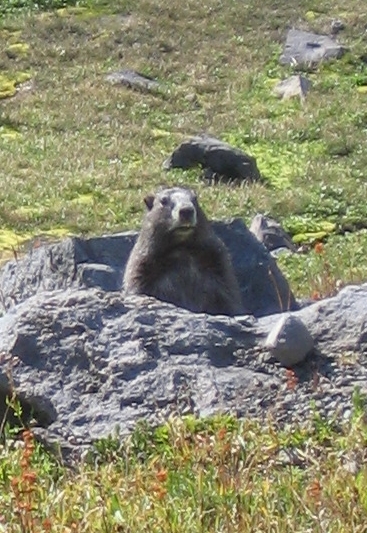
Among the rocks, we saw a number of pikas (conies), roughly the size of guinea pigs, who whistle warnings to each other as you go by. While we didn't get any pictures of them, we did catch this golden-mantled ground squirrel surveying its domain.
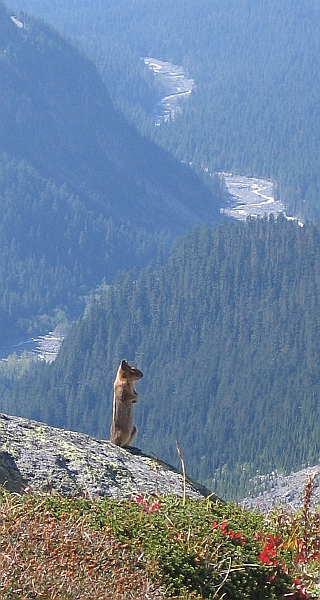
Back down around treeline, note that the trees here do not avoid the wind-swept ridges for the warmer valleys. Instead, it is the slopes, where the snow builds up and slides down, which are clear of trees.
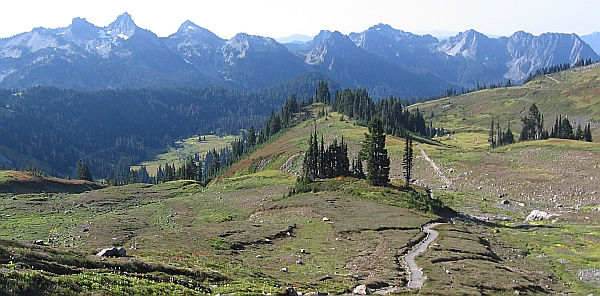
It was late in the season for wildflowers in the meadows, but there were still some.
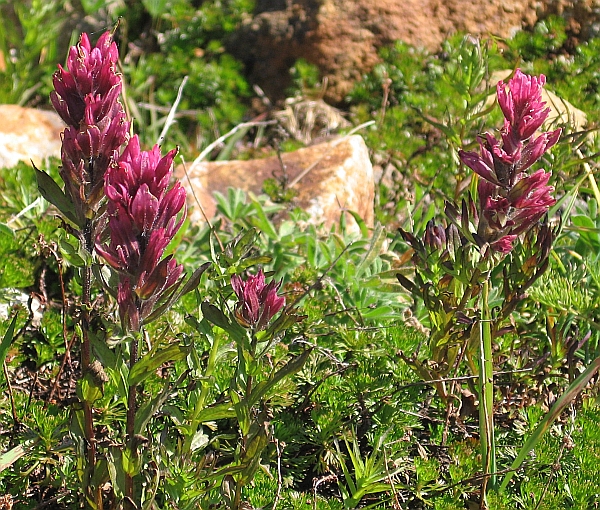
We finished that day with a hike up a ridge to the south.
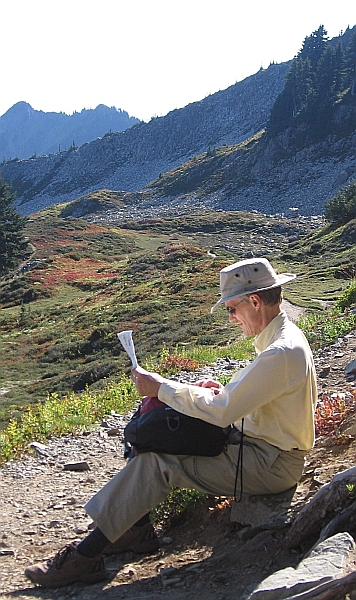
That hike ended by a lake that was lined up for a perfect Rainier reflection.
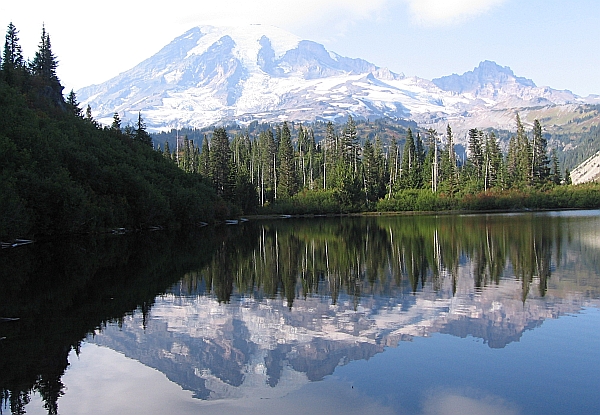
On the way out of the park, you can see the Nisqually River (which comes from the glacier), grey with ground rock dust.
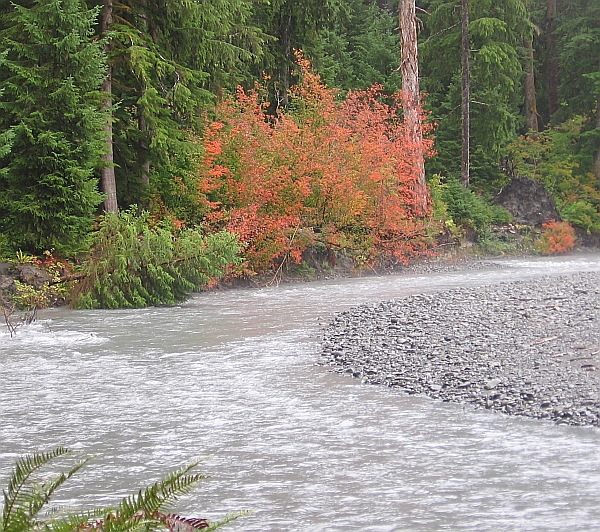
The next day, we drove to the SE corner of the park, where there is a grove of huge trees known as the "patriarchs", and some fine river and stream hikes.
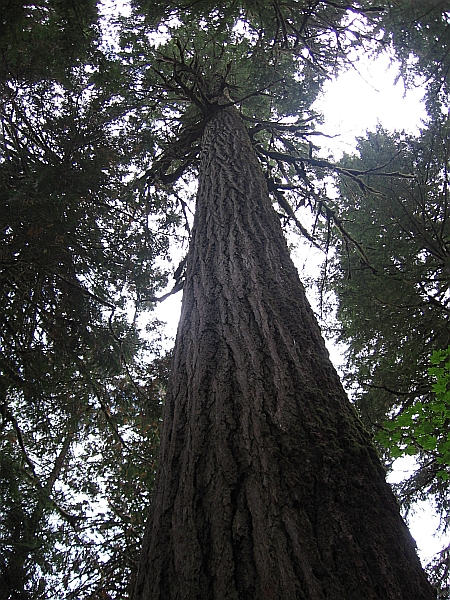
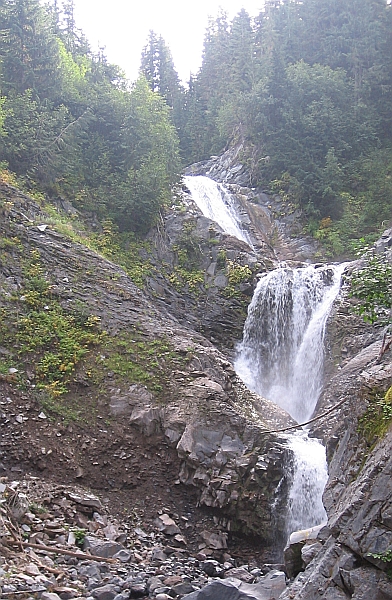
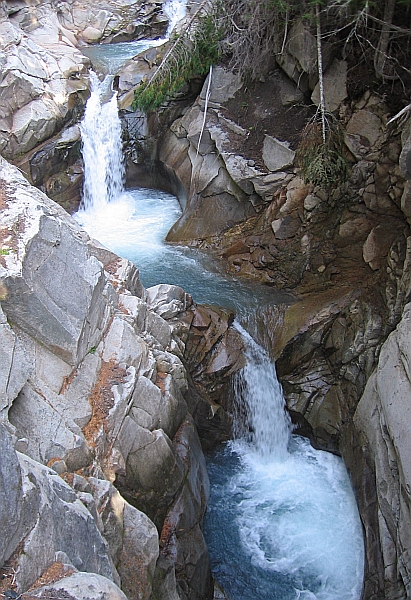
New trees often grow on and get their nutrients from fallen "nurse logs".
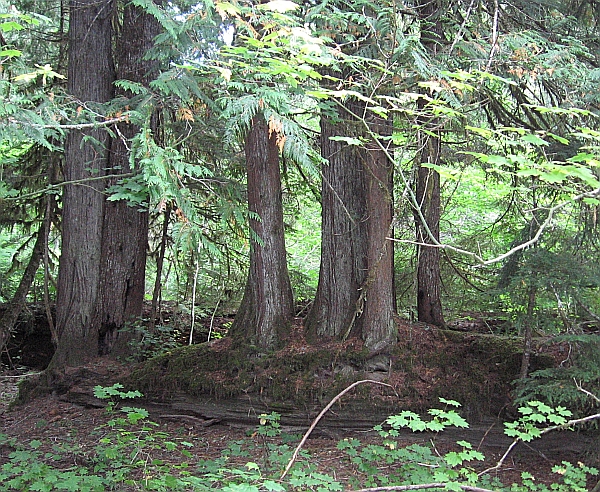
We squeezed in one more hike on the way back, and were struck by how thin the trees there tend to be, sometimes no more than bristles around the trunk.
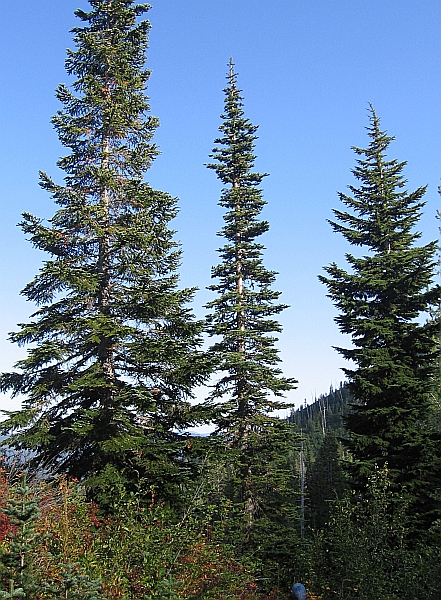
On our last day in the Rainier area, we took the fairly steep trail up to Comet Falls.
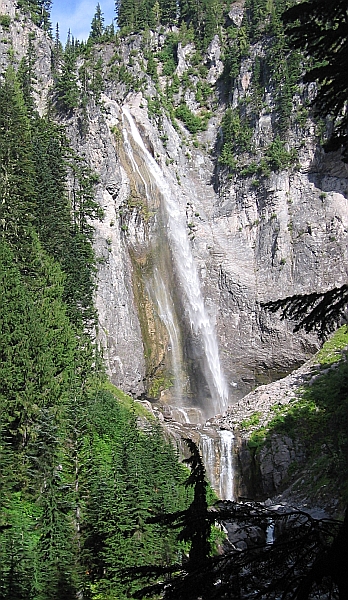
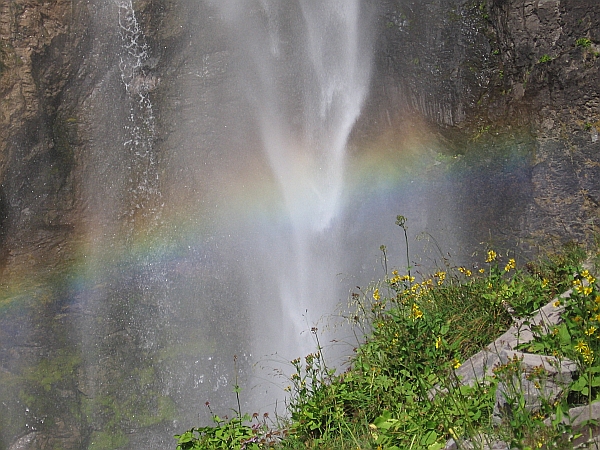
That trail then continues up to an area of alpine meadow known as Van Trump Park.
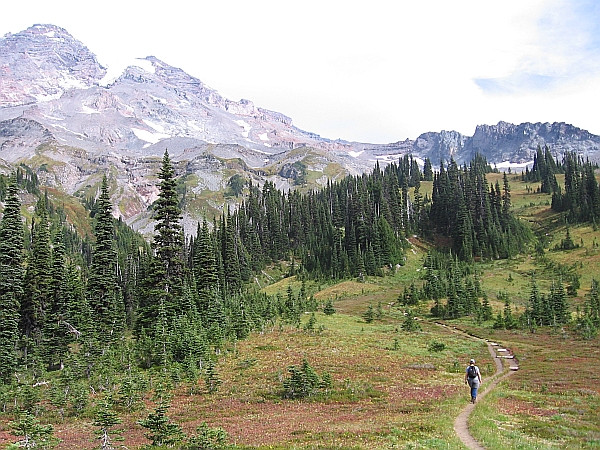
There's a good view from there of the raw edge of one of the smaller glaciers.
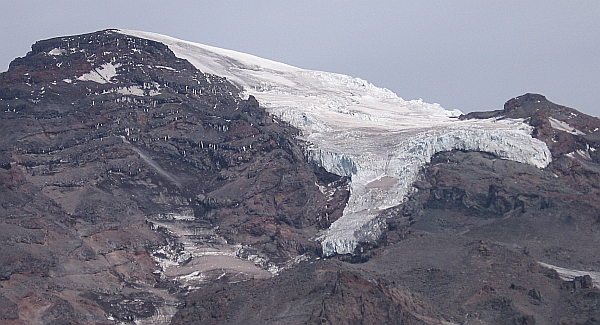
On the way back down the trail that day, we saw some black-tailed deer.
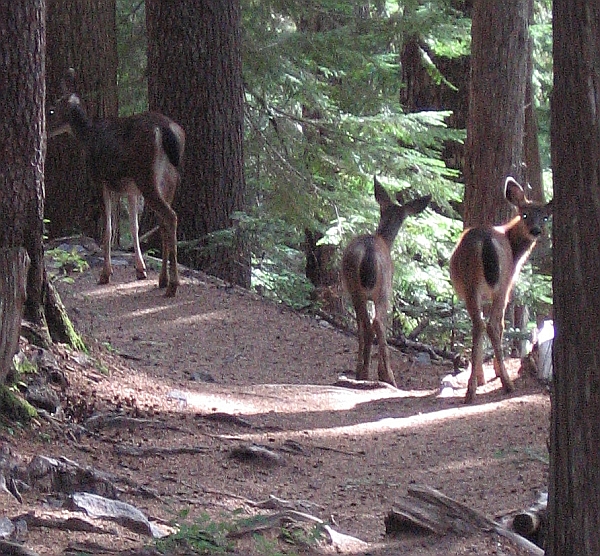
Then we spent a few days on the Olympic Peninsula, with the weather back to the expected showers. In the Hoh Rainforest, tree branches are covered with mosses and ferns.
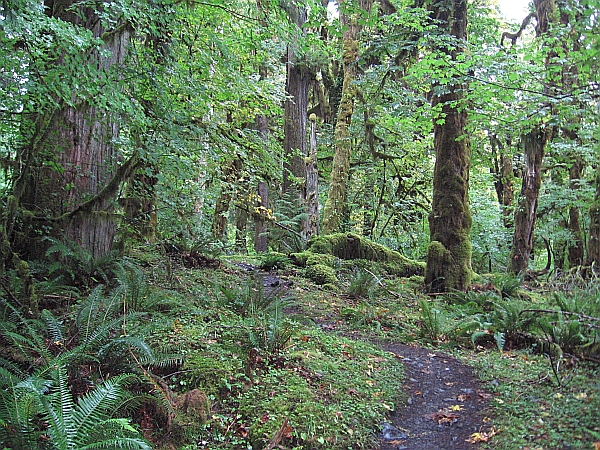
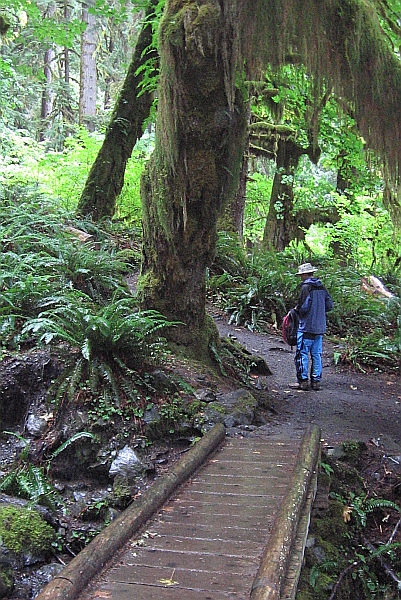
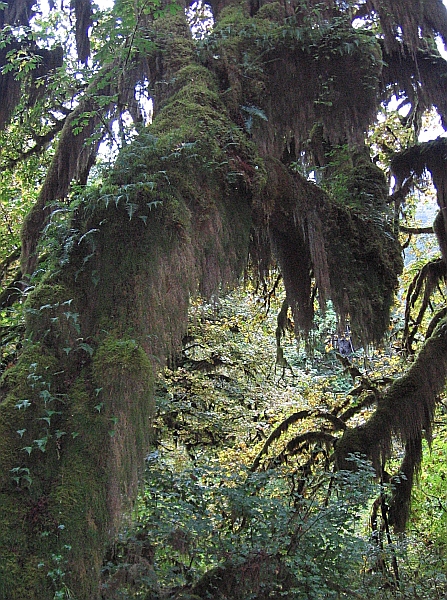
Here, too, many trees got their start on nurse logs. Even when the old log has rotted away, you can see where the new tree's roots used to go around it.
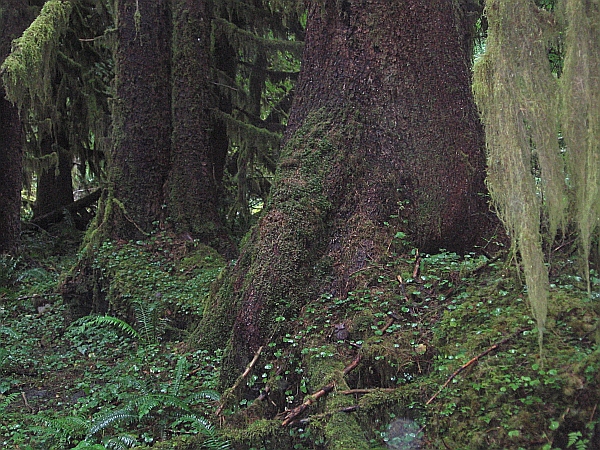
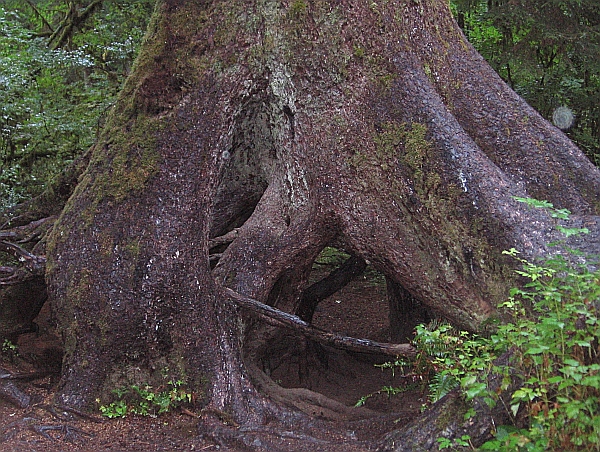
It was also a great area for mushrooms.
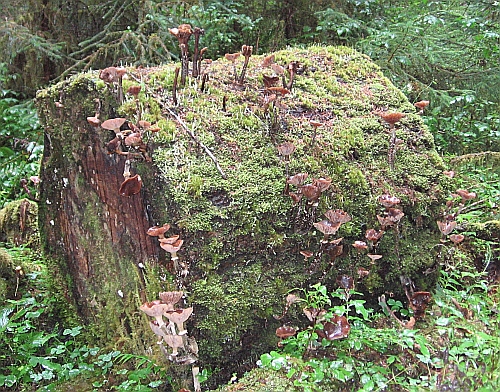
The Olympic beaches are marked by "sea stacks", where harder rock has resisted the erosion.

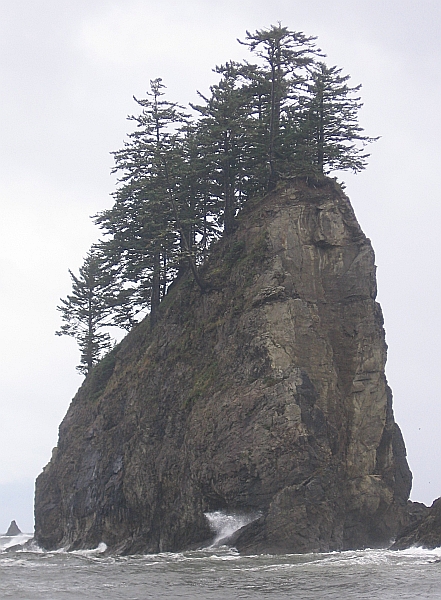
The are also often covered by a tangle of large logs along the highwater line.
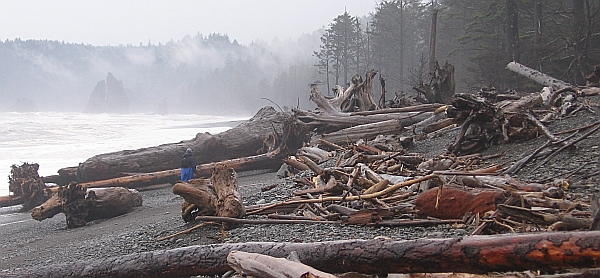
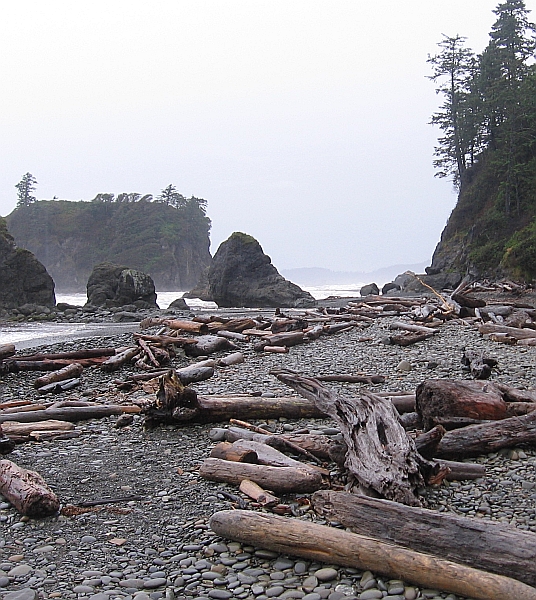
We saw a few bald eagles, including this one, perched on a snag.

One beach was all flat, rounded stones, like in a Zen meditation garden. Others were sandy, with interesting kinds of seaweed.
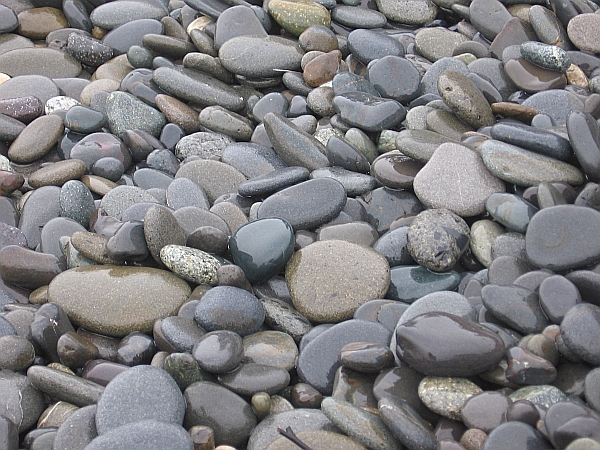

Some rocks had drill-holes occupied by mollusks. We didn't know whether the clams somehow drill out the holes, or if something else makes them.
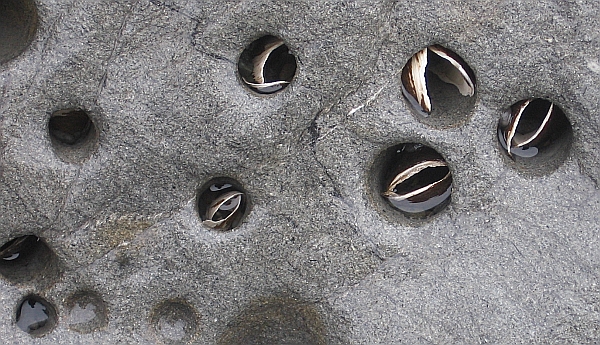
On our way back Seattle, we stopped at a wildlife refuge where the Nisqually River (which comes from the Nisqually glacier on Rainier pictured above) runs into Puget Sound, were we spied this heron.

On our last day, we hiked in the Cascades just east of town, going from Snoqualmie Pass up to Snow and Gem Lakes.
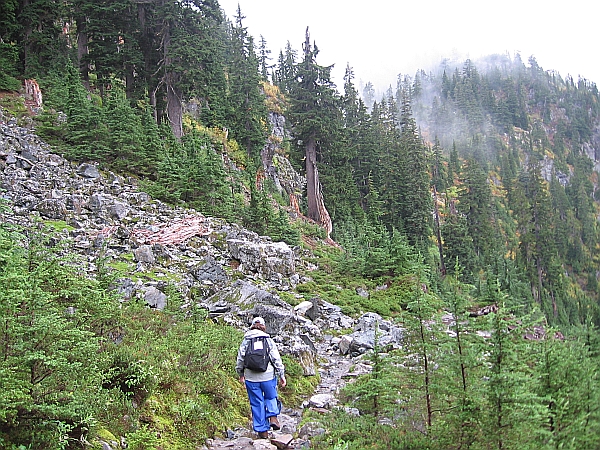
There were some maple bushes along the trail, reminding us of New England fall color.
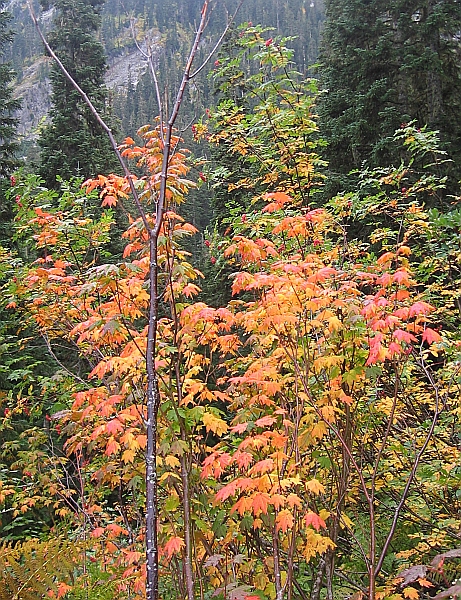
Snow Lake still had snow fields at one end left from last season, and a few new flurries fell while we were there.
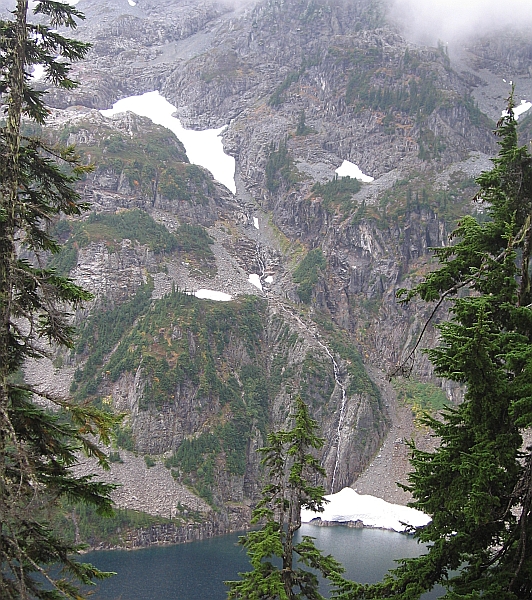
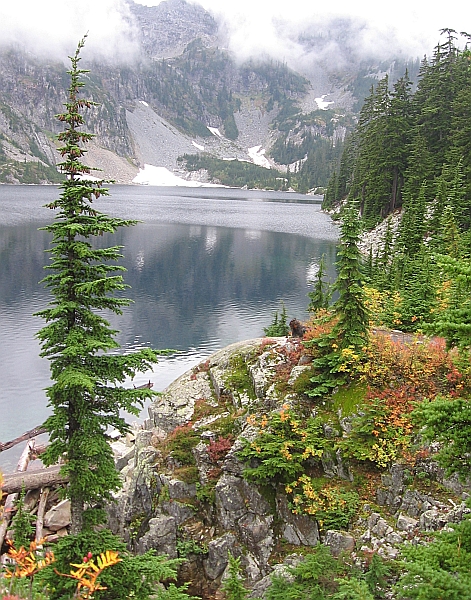
And that was our trip to Seattle.

Back to ramshaw.info home page
Updated 2008-10-24